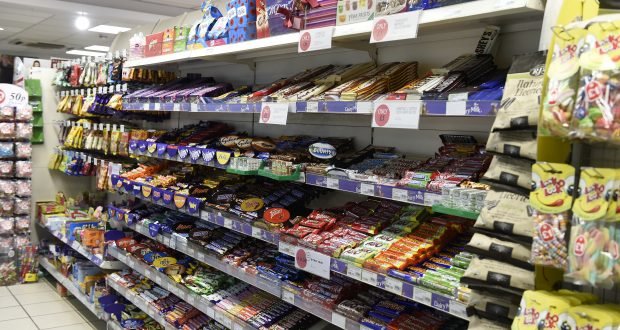
The news came as the UK Department for Health & Social Care unveiled its response to a consultation on limiting the placement of certain high-fat, high-salt and high-sugar products at store entrances, at the end of aisles and near the till-point.
They also want to ban mechanisms such as ‘buy one get one free’ and ‘three for two’ deals.
The new rules would provide exemptions for smaller stores that are:
Under 2,000sq ft in size, or run by a business with fewer than 50 full-time-equivalent employees.
But in a controversial move, symbol group or franchise stores will be deemed to be part of the larger, brand-owner’s business.
The Association of Convenience Stores (ACS) warned that the restrictions, as they stand, would have a significant impact on more than one in five of England’s local shops.
Chief executive James Lowman said: “We are pleased that our case for exempting small stores has been accepted in principle.
“But based on how we expect these exemptions to be interpreted, we estimate the restrictions will still apply to between 5,000 and 10,000 convenience stores, depending on the definition used for franchises. “We are concerned that the government’s consultation response does not show an understanding of the independence of symbol group retailers.
“Retailers are now facing difficult decisions on how to lay out their stores, despite little evidence that these restrictions will be effective. “For many communities, the convenience store is not only the last remaining shop, but the last remaining service.
“Every new bureaucratic burden makes life harder for them and ultimately threatens the provision of all of the goods they sell, including healthy food options, which are a growing part of the convenience store offer.
“Even for the majority of convenience stores that will thankfully be exempted from location restrictions, there will be changes to the way promotions are configured by them, their wholesalers and manufacturers.
“We are working to clarify exactly which mechanisms will be outlawed beyond the oft-quoted ‘buy one get one free’ deals that are actually very rarely used in our sector.
“While we are pleased to have worked effectively with government to mitigate the impact of these restrictions, we should be clear that today we have reached a new level of government intervention in the way our members trade.”
The proposals were backed by lobby group Action on Sugar, whose chair, Professor Graham MacGregor, said: “This important policy, specifically targeting the most sugar-laden food and drinks packed with excessive calories, will provide a level playing field for responsible retailers, enabling them to promote healthier options to families.”
The precise products that cannot be promoted or located in certain parts of the store will be confirmed shortly.
But the government says pre-packed food and drink in the following categories will be restricted if they are considered to be high in fat, sugar or salt:
Chocolate confectionery, Sugar confectionery. Crisps and savoury snacks, Morning goods, Ice-cream. Cakes, Sweet biscuits, Breakfast cereals, Puddings, Soft drinks, Yogurts, Milk-based drinks with added sugar, Juice-based drinks with added sugar, Pizzas, Ready meals
Meal centres, including breaded and battered products Chips and similar potato products.
The new rules are scheduled to take effect from April 2022, with regulations tabled in October 2021.